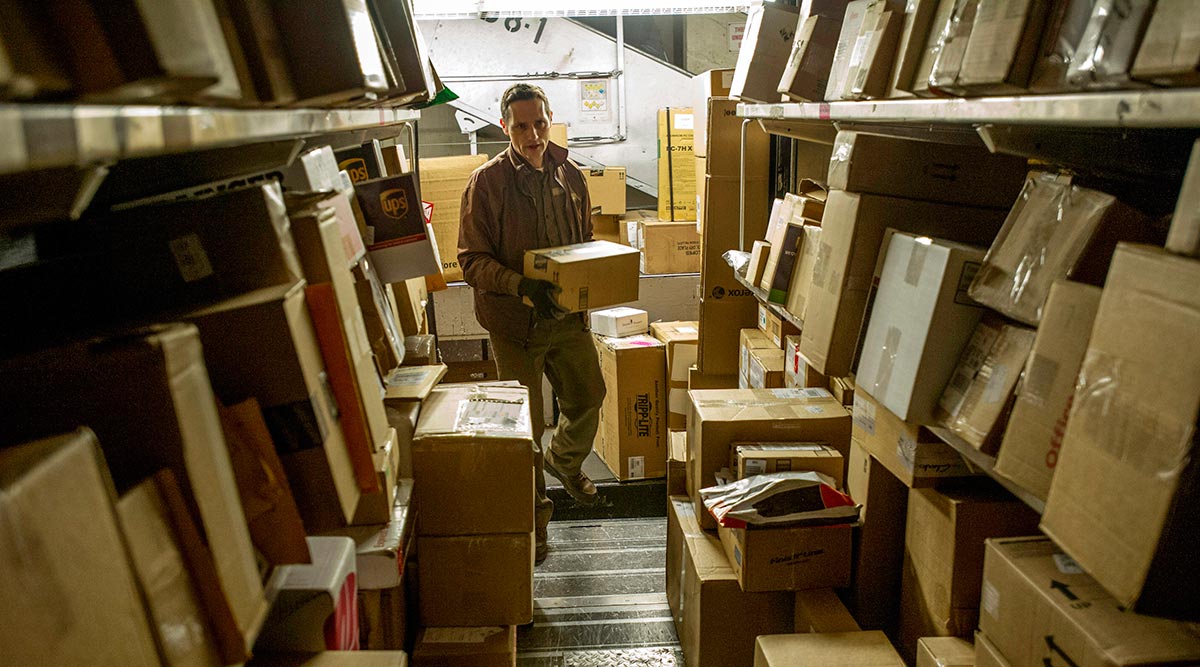UPS Must Pay $247 Million to N.Y. Over Untaxed Cigarettes

UPS Inc. must pay $247 million to the state and city of New York for what a judge called the company’s "egregious and prolonged" failure to stop shipments of untaxed cigarettes from American Indian reservations that undermined anti-smoking efforts.
U.S. District Judge Katherine Forrest in Manhattan said she wanted to send a message to the most senior executives at UPS about the cost of such misconduct. Modest penalties, she said in her ruling May 25, “would not make a sufficient corporate impact” on the company.
UPS ranks No. 1 on the Transport Topics Top 100 list of the largest U.S. and Canadian for-hire carriers.
"The court is also troubled by UPS’ consistent unwillingness to acknowledge its errors; UPS has persisted in claiming it did nothing wrong,” Forrest said.
The penalties help define how far some companies must go to police the activities of their customers in an era when online sales have greatly increased the number of packages being shipped. UPS and rival FedEx Corp. have each posted record package shipments in recent years.
FedEx ranks No. 2 on the for-hire TT100.
Atlanta-based UPS pledged to appeal, contending New York’s action was an attempt to force it into a quasi-law enforcement role that was never part of its agreement.
“The court’s monetary award is excessive and far out of the bounds of constitutional limits, particularly given that the shipments at issue generated around $1 million in revenue,” the company said in an e-mailed statement.
Compliance Failure
The decision comes two months after Forrest concluded that UPS failed to comply with a 2005 deal it struck with the state by continuing to service contraband cigarette enterprises operating out of smoke ships on Indian reservations throughout New York.
UPS had argued that it complied with the law, adopting a policy that went beyond the mandate of federal and state requirements, and that the dispute was triggered by the city and state mistaking cartons of legally shipped “little cigars” for cigarettes.
New York Attorney General Eric Schneiderman praised the judge’s decision, saying in an e-mailed statement that reducing the flow of illegal cigarettes would help address the "number one public-health crisis" in the state.
UPS, FedEx and DHL Worldwide Express, a unit of Deutsche Poste AG, agreed in 2005 and 2006 not to deliver cigarettes to U.S. residents as part of a campaign by states to reduce illegal tobacco sales and bolster antitrafficking laws. Forrest found UPS had violated that deal with shipments involving more than a dozen customers, with names such as Indian Smokes, Smokes & Spirits and Mohawk Spring Water, according to the decision.
Schneiderman, who sued in 2015, also argued UPS cost the state millions of dollars in tax revenue by delivering cigarettes to private residences and unauthorized sellers. The state’s top cop argued at a trial in September that cheaper cigarettes attract young people who are disproportionately lured to smoking by lower costs.
Zachary Carter, the city’s top lawyer, said the ruling reflects the serious nature of the offense. "Cigarette smoking is a leading cause of preventable death and the city and the state will continue in their efforts to protect the public health," he said in a statement May 25.
Package Issues
UPS argued at the trial that cigarettes and little cigars are practically indistinguishable — making it difficult to inspect packages — and provided the judge with plastic bags containing individual samples.
The city said UPS’ employees and decision makers chose to disregard the law and ignored internal polices that were intended to detect signs that cigarette traffickers and illegal shippers were using the company’s services. The lax approach gave New Yorkers access to cheaper cigarettes that undermined the purpose of city and state taxes imposed to reduce smoking rates and improve public health, the city said.
Schneiderman claimed that from at least 2010 to 2014 UPS made more than 78,500 illegal shipments in violation of the 2005 pact to halt the practice. That amounted to more than 683,000 cartons of untaxed cigarettes and a direct tax loss to the state of almost $30 million and $4.7 million for New York City, he said.
In the years before the suit was filed, New York State was the biggest net importer of smuggled cigarettes in the U.S., according to the Tax Foundation. More than half of all cigarettes sold in the state are smuggled product, the same group said in a 2015 report.
The city and state have brought a similar case against Memphis-based FedEx, which is pending in Manhattan federal court. The parties are still exchanging evidence in the case, with New York recently asking FedEx for internal documents about tobacco shipments for specific customers, and FedEx carrying out at least one deposition of a former account executive, court records show.
FexEx echoed UPS’s argument that the company isn’t a law enforcement agency and that it’s been cooperating with federal and state agencies.
“We are committed to honoring the privacy of our customers, who trust us to transport their packages safely and securely," FedEx spokeswoman Meredith Heighington said in an e-mail. "We take that trust very seriously and will continue to defend our position in the pending litigation.”




